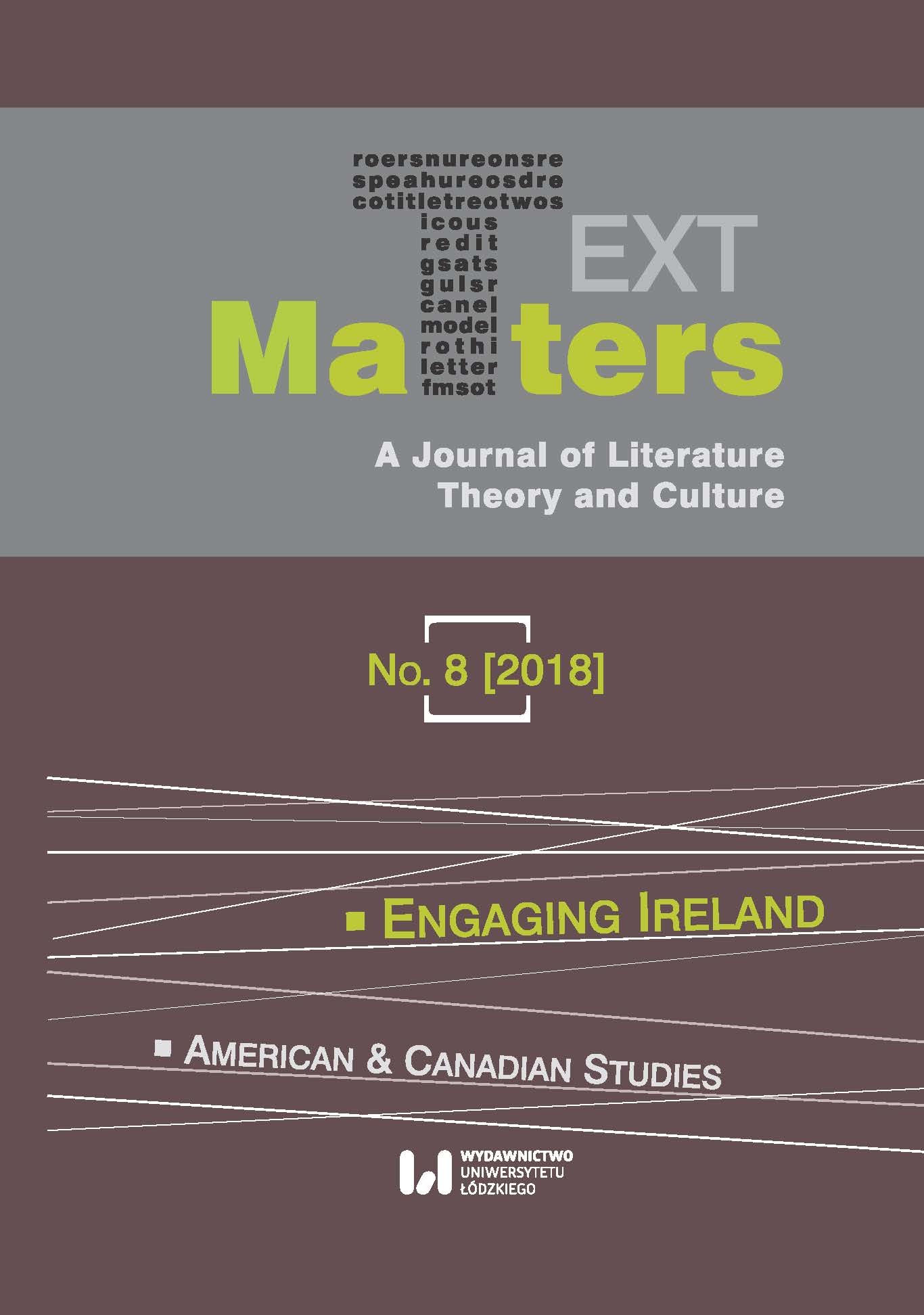Outside the Magic Circle of White Male Supremacy in the Jim Crow South: Virginia Foster Durr’s Memoirs
DOI:
https://doi.org/10.1515/texmat-2018-0018Keywords:
Virginia Foster Durr, white male supremacy, mammy, Jim Crow South, life-writingAbstract
Virginia Foster Durr was born in 1903 in Birmingham, Alabama in a former planter class family, and in spite of the gradual decline in the family fortune, she was brought up as a traditional southern belle, utterly subjected to the demands of the ideology of white male supremacy that ruled the Jim Crow South. Thus, she soon learnt that in the South a black woman could not be a lady, and that as a young southern woman she was desperately in need of a husband. It was not until she had fulfilled this duty that she began to open her eyes to the reality of poverty, injustice, discrimination, sexism and racism ensuing from the set of rules she had so easily embraced until then. In Outside the Magic Circle, Durr describes the process that made her aware of the gender discrimination implicit in the patriarchal southern ideology, and how this realization eventually led her to abhor racial segregation and the ideology of white male supremacy. As a consequence, in her memoirs she presents herself as a rebel facing the social ostracism resulting from her determination to fight against gender and racial discrimination in the Jim Crow South. This article delves into Durr’s composed textual self as a rebel, and suggests the existence of a crack in it, rooted in her inability to discern the real effects of white male supremacy on the domestic realm and in her subsequent blindness to the reality behind the mammy stereotype.
Downloads
References
Barnard, Hollinger F. Editor’s Note. Outside the Magic Circle. By Virginia Foster Durr. Ed. Hollinger F. Barnard. Tuscaloosa: U of Alabama P, 1994. xv–xix. Print.
Google Scholar
Durr, Virginia Foster. Outside the Magic Circle. Ed. Hollinger F. Barnard. Tuscaloosa: U of Alabama P, 1994. Print.
Google Scholar
Eakin, Paul John. Fictions in Autobiography: Studies in the Art of Self-Invention. Princeton: Princeton UP, 1985. Print.
Google Scholar
Hale, Grace Elizabeth. Making Whiteness: The Culture of Segregation in the South, 1890–1940. New York: Random, 1998. Print.
Google Scholar
Harris, Trudier. From Mammies to Militants. Domestics in Black American Literature. Philadelphia: Temple UP, 1982. Print.
Google Scholar
Hobson, Fred. But Now I See. The White Southern Racial Conversion Narrative. Baton Rouge: Louisiana State UP, 1999. Print.
Google Scholar
Jones, Jacqueline. Labor of Love, Labor of Sorrow. New York: Vintage, 1995. Print.
Google Scholar
Lumpkin, Katharine DuPre. The Making of a Southerner. Athens: U of Georgia P, 1991. Print.
Google Scholar
Manring, M. M. Slave in a Box: The Strange Career of Aunt Jemima. Charlottesville: UP of Virginia, 1998. Print.
Google Scholar
McElya, Micki. Clinging to Mammy: The Faithful Slave in Twentieth Century America. Cambridge: Harvard UP, 2007. Print.
Google Scholar
Niewiadomska-Flis, Urszula. Live and Let Di(n)e. Food and Race in the Texts of the American South. Lublin: John Paul II Catholic University of Lublin, 2017. Print.
Google Scholar
Prenshaw, Peggy Whitman. Composing Selves. Southern Women and Autobiography. Baton Rouge: Louisiana State UP, 2011. Print.
Google Scholar
Prenshaw, Peggy Whitman. “Memoirs’ Characters: Writer, Narrator, Protagonist.” Constructing the Self. Essays on Southern Life-Writing. Ed. Carmen Rueda-Ramos and Susana Jiménez Placer. Valencia: Publicacións de la Universitat de València, 2017. 145–60. Print.
Google Scholar
Rueda-Ramos, Carmen, and Susana Jiménez Placer. Constructing the Self. Essays on Southern Life-Writing. Valencia: Publicacións de la Universitat de València, 2017. Print.
Google Scholar
Sharpless, Rebecca. Cooking in Other Women’s Kitchen. Domestic Workers in the South, 1865–1960. Chapel Hill: U of North Carolina P, 2010. Print.
Google Scholar
Smith, Lillian. Killers of the Dream. New York: Norton, 1994. Print.
Google Scholar
Terkel, Studs. Foreword. Outside the Magic Circle. By Virginia Foster Durr. Ed. Hollinger F. Barnard. Tuscaloosa: U of Alabama P, 1994. xi-xiii. Print.
Google Scholar
Tucker, Susan. Telling Memories among Southern Women. Baton Rouge: Louisiana State UP, 1988. Print.
Google Scholar
Wallace-Sanders, Kimberly. Mammy: A Century of Race, Gender, and Southern Memory. Ann Arbor: U of Michigan P, 2008. Print.
Google Scholar
White, Deborah Gray. Ar’n’t I a Woman? Female Slaves in the Plantation South. New York: Norton, 1999. Print.
Google Scholar
Downloads
Published
How to Cite
Issue
Section
License
Copyright (c) 2018 A Journal of Literature, Theory and Culture

This work is licensed under a Creative Commons Attribution-NonCommercial-NoDerivatives 4.0 International License.













